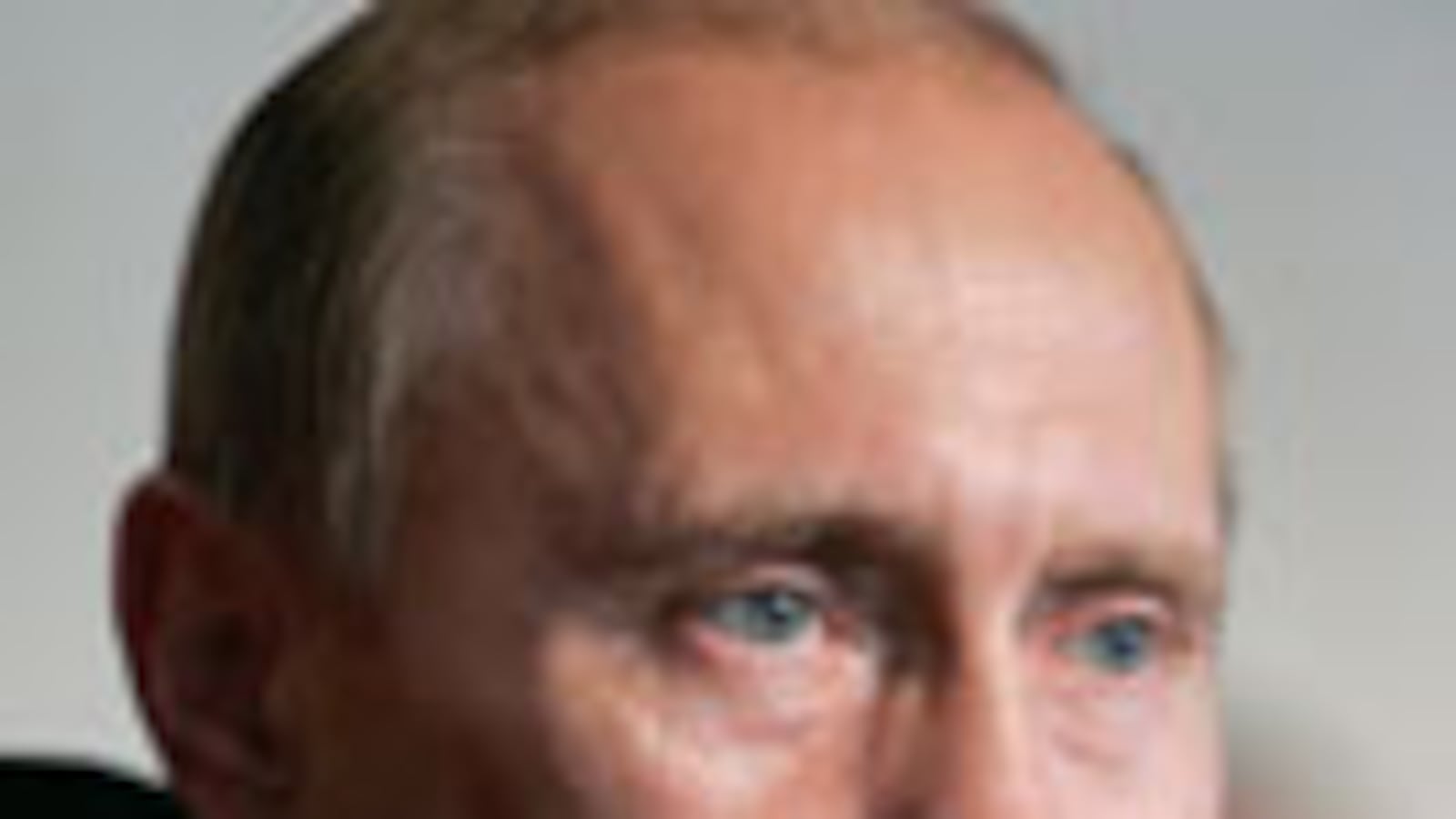
Bush is handing Obama another volatile international crisis: Relations between the US and Russia are at their chilliest in decades, and may have passed the point of no return.
Here’s another thorny problem facing the new president and his secretary of state, whoever he or she will be. Expect the Obama administration to move like lightning to try defusing yet another of the appalling messes George W. Bush cooked and left to fester—the worst strategic relations between Washington and Moscow since the chilliest days of the Cold War.
The Russians remain implacably opposed to letting Bush build a ground-based mid-course interceptor—the GBI—base in Poland to try to shoot down any future Iranian intercontinental ballistic missiles.
Even during tense stand-offs in the Cold War this kind of hostile talk never occurred.
Bush and his secretary of state, Condoleezza Rice, might have been able to persuade the Russians to accept the need for the Polish ballistic missile defense (BMD) base if they had dealt cautiously and fairly with the Russians on other strategic issues. But they combined their forward policy with drives to incorporate Ukraine and Georgia into NATO. The Russian army rolled over those ideas by occupying one-third of Georgia in only four days, from August 8 through 11. Now the Russians recognize that Obama will be very different from his know-nothing predecessor. In a telling signal, the Russian news agency RIA Novosti reported Wednesday that the US Embassy in Moscow had announced the US and Russian governments have already approved the revival of negotiations on strategic security and missile defense to start in December. US Undersecretary of State for Political Affairs William Burns already met with Russian Foreign Minister Sergei Lavrov in early November to prepare for these new talks.
There are other straws of hope blowing in this particular wind. RIA Novosti also quoted an unnamed Kremlin official as saying Russian leaders were optimistic that they could cut a deal on missile defense and other strategic issues with Obama. But they want to hear first what President Obama and his team will propose to them after taking office.
During the election campaign, Obama and several of his advisers expressed skepticism about the value of building the BMD base in Poland. The Democratic-controlled 110th Congress, unwilling to publicly clash with Bush on the issue before the November 4 presidential election, slashed large sums that the White House wanted to allocate to the program in the fiscal year 2009 budget but did not try to kill it. Russian policymakers, familiar with these developments, clearly regard them as positive and are signaling that they are prepared to deal with Obama and his team. "A compromise is still possible," the Russian official told RIA Novosti. "However, the current U.S. proposals are insufficient...because the Bush administration is seeking to make the decision (on the deployment of the missile shield) irreversible and...leave the new U.S. president without an alternative, putting on him the burden of responsibility for something that was decided without him."
Despite the potential opening, Bush officials, operating with continuing obliviousness to political, economic, and strategic reality, have tried to cut a deal with the Kremlin since Obama won the election. As the Russians refused to deal with the Bush administration on these issues even before the election, there seems no explanation for this strange behavior except for the acquired momentum of a delusional sense of omnipotence. Sure enough, RIA Novosti confirmed Wednesday that the Russian government was sticking to its determination to refuse to negotiate any further with the Bush administration on the BMD bases issue.
Bush once again has handed Obama a difficult if not impossible problem to fix. The first priority of Obama and his secretary of state will be to rein in hothead Georgian President Mikheil Saakashvili and prevent him from embroiling the United States in further antagonisms with Russia while preserving Georgia’s autonomy. Admiral Eduard Baltin, the former commander of Russia’s Black Sea Fleet, warned publicly in late August that if a conflict broke out over Georgia, the Russians could sink all US and NATO warships currently operating in the Black Sea with a single salvo from a missile cruiser within 20 minutes. Even during tense stand-offs in the Cold War this kind of hostile talk never occurred.
After defusing the Georgia flash point, Obama and his national security advisers will have to grasp the nettle of the BMD Polish base issue. There is a consensus developing among congressional Democrats—while in other areas cautiously supportive of practical BMD development and deployment policies—that the Polish base should not be built and should be scrapped. But the possibility of Iran being able to wave a nuclear-armed ICBM at American cities within two or three years cannot be discounted, and the rational behavior of President Mahmoud Ahmadinejad cannot be assumed.
The problem is that the arrogant, insensitive, and relentless forward encroachment policies of the Bush administration toward Russia over the past eight years have fed every Russian fear while at the same time failing to counter the projection of Russian power. A new basis for US-Russia policy pivots on the Polish base. Selling the case to Moscow for building that base is likely to prove Mission Impossible. On the other hand, not having a US military presence in Poland now would be seen in many Eastern European capitals as a retreat. Dealing with the base will be the beginning of Obama’s relationship with Russia—one of the many messes that Bush has bequeathed him.
Martin Sieff is defense industry editor of United Press International and UPI‘s former chief political correspondent. He was State Department correspondent for The Washington Times and has received three Pulitzer Prize nominations for international reporting.






